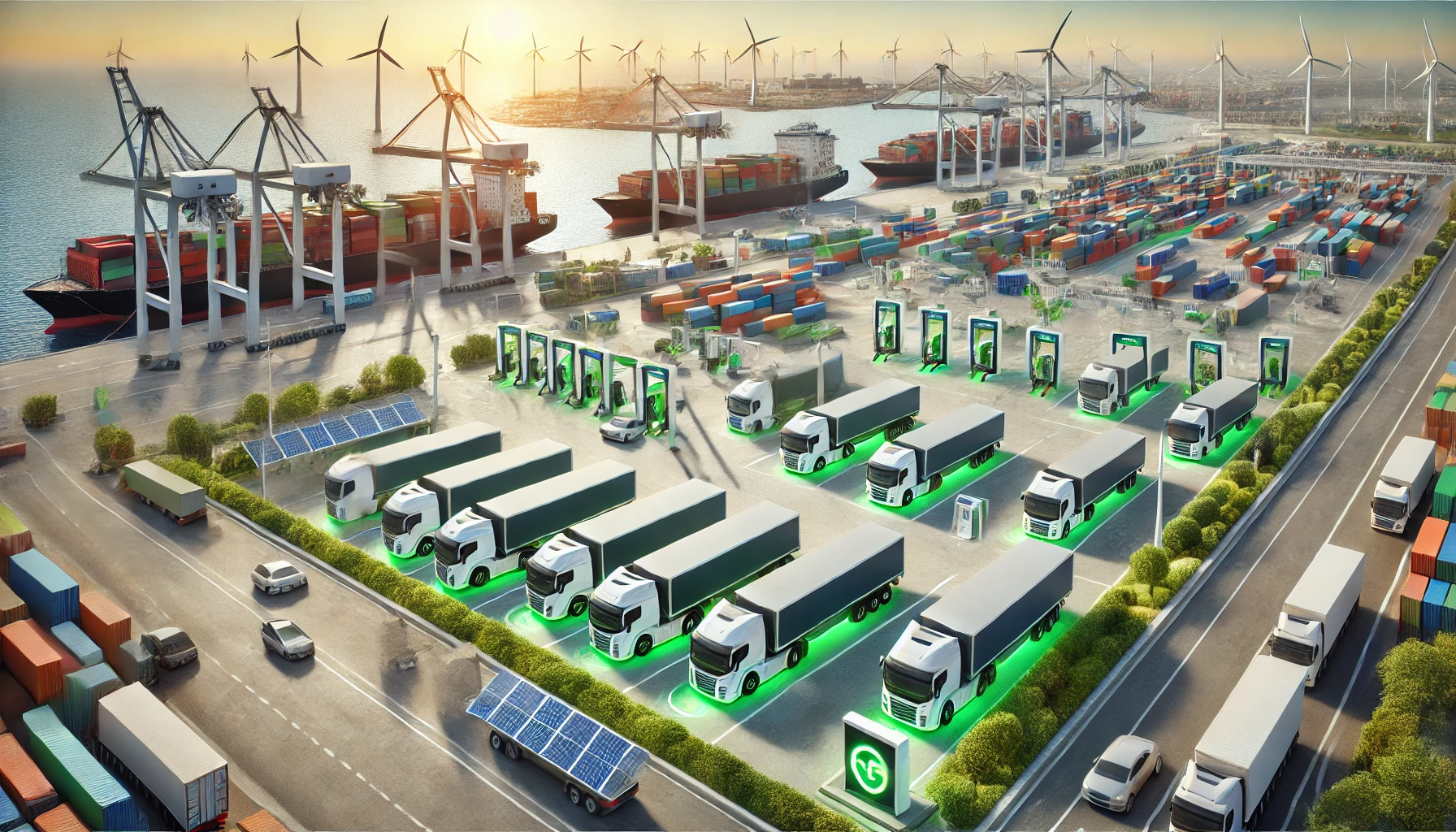The United Nations Development Programme (UNDP), in partnership with the International Centre for Private Sector in Development (ICPSD) and Dogus University, has released a groundbreaking report addressing the urgent need to transition to zero-emission trucks (ZETs) and green ports. The trucking industry contributes a substantial 5% of global energy-related greenhouse gas emissions, exacerbating climate change and threatening public health. Drawing on a mix of qualitative and quantitative research, including interviews with key stakeholders and case studies, the report underscores the transformative potential of ZETs in reducing emissions and enhancing global sustainability. However, the path to this transition is fraught with challenges, such as limited charging infrastructure, high capital costs, and logistical inefficiencies that require immediate attention.
Overcoming Infrastructure and Financial Barriers
A significant barrier to ZET adoption lies in the inadequate infrastructure to support their widespread use. The current charging network is insufficient for medium- and heavy-duty vehicles, with slow charging speeds, battery limitations, and inadequate grid capacity posing substantial hurdles. High upfront costs for trucks and charging infrastructure deter small and medium-sized enterprises from transitioning, compounded by uncertainties surrounding the resale value of ZETs. Additionally, the operational inefficiencies caused by limited range and durability in extreme conditions further hinder market penetration. To address these issues, the report recommends a comprehensive approach that includes expanding charging networks, streamlining zoning and permitting processes, and deploying smart charging technologies to optimize energy use.
On the financial front, innovative solutions such as green bonds, truck loan assistance programs, and rental models can significantly lower the entry barriers for fleet operators. Battery-as-a-service models offer a viable alternative to ownership by reducing upfront costs and spreading expenses over time. The report highlights the importance of public-private partnerships (PPPs) to share investment burdens, where governments provide financial incentives and private entities invest in vehicle and infrastructure development. Blended finance mechanisms, combining public and private investments, can also mitigate risks and accelerate the deployment of ZETs.
Policy and Regulatory Frameworks as Catalysts
Supportive policies and regulations are pivotal to driving the adoption of zero-emission technologies. Establishing stringent CO2 reduction standards and incentivizing the sale and purchase of ZETs are key strategies outlined in the report. Governments are encouraged to implement fiscal measures, such as subsidies, tax incentives, and carbon pricing, to bridge the cost gap between diesel and electric trucks. Policies promoting total cost of ownership (TCO) parity are particularly critical, as they encompass both the upfront purchase price and ongoing operational costs, making ZETs more attractive to fleet operators.
The report also underscores the importance of integrating renewable energy sources into the transport sector to align with clean energy goals. By mandating renewable energy production for transportation, policymakers can further reduce emissions and ensure energy security. Clear regulatory frameworks and streamlined processes are necessary to eliminate uncertainties and foster market growth, enabling a smoother transition to sustainable logistics systems.
Green Ports as Pioneers of Sustainable Logistics
Ports serve as critical hubs for global trade and logistics, making them ideal starting points for implementing sustainable transport systems. The report highlights the pivotal role of green ports in supporting ZET integration through the development of port-based charging infrastructure and electrified logistics operations. Case studies from regions like Rotterdam, Los Angeles, and Hamburg illustrate successful initiatives, such as deploying advanced charging stations and introducing hydrogen refueling systems. For instance, the Port of Rotterdam has opened a state-of-the-art charging station that accommodates multiple trucks simultaneously, while the Port of Los Angeles has implemented a Clean Truck Program to encourage the use of ZETs.
These efforts not only reduce emissions in high-traffic areas but also demonstrate the potential for scaling such solutions globally. Electrifying port logistics and creating green corridors between major trade hubs are critical steps toward achieving sustainable transportation and meeting international climate goals.
Fostering Awareness and Strategic Partnerships
Educating stakeholders about the environmental and economic benefits of ZETs is essential for driving their adoption. The report advocates for targeted awareness campaigns to inform fleet operators and logistics companies about available incentives, long-term cost savings, and the operational advantages of zero-emission technologies. Highlighting successful case studies through industry forums and peer-to-peer engagement can dispel misconceptions and build confidence in the transition to green logistics.
Strategic partnerships are another cornerstone of the report’s recommendations. Collaboration among governments, research institutes, international organizations, and private entities is crucial to developing cohesive roadmaps and addressing technical, financial, and policy-related challenges. For instance, partnerships between original equipment manufacturers and suppliers can ensure a stable supply chain for critical components like batteries and fuel cells. These alliances enable resource sharing, innovation, and coordinated action, accelerating the global shift to sustainable transport systems.
Building a Sustainable Transport Ecosystem
The UNDP report concludes with a vision for a resilient and sustainable transportation ecosystem that meets the dual goals of environmental protection and economic growth. By fostering innovation, mobilizing investments, and implementing comprehensive strategies, the transition to ZETs can address pressing climate challenges while improving public health and enhancing operational efficiency. From electrifying port logistics to engaging the private sector, every stakeholder has a role to play in shaping a cleaner, greener future.
Through targeted policies, strategic collaborations, and a shared commitment to sustainability, zero-emission trucks and green ports have the potential to revolutionize global transportation. These efforts represent not just a technological shift but a critical step toward achieving long-term climate goals and ensuring a healthier planet for future generations. The journey to zero emissions is complex but achievable with the collective action of governments, industries, and communities worldwide.











